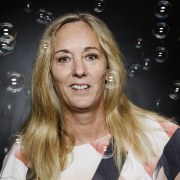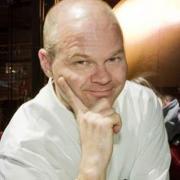Socio-scientific exhibitions have established a new paradigm within science engagement organisations over the past few decades. But how do we approach the development of these exhibitions in order to provide space for both natural science AND personal or social issues, ethical questions and unknown futures? What valuable lessons can we learn from listening to each others' experiences? In this session we explore ways of creating interactive exhibits with socio-scientific issues. We will explore how to use means such as narratives, immersive arts, digital technology and university collaboration to create a simple concept for a complex topic.
This session is sponsored by ATELIER BRÜCKNER as a part of the 21st century skills conference track.
Facilitator
Programme Manager - International Relations and Learning
Hellerup
Denmark
Session speakers
Exhibition Developer / Project Manager
Copenhagen
Denmark
Technology development is accelerating exponentially and within the next 10 years e.g. gene sequencing, deep brain implants and crispr technology will most likely be cheap and accessible technologies in western world societies. However, most people lack the competencies for handling, analyzing or discussing technology in a responsible and ethical way. How do we create interactive exhibits that explore both the technology AND the personal, societal and ethical aspects without overwhelming the visitors? Narratives have inherent structures that might be suitable for this. Mai will present a way of constructing a story line for a technology exhibition that makes the visitors task seem personally relevant, involving and easily comprehendible.
CEO
Vantaa
Finland
Natural forces are a powerful topic for science engagement: wind machines and earthquake simulators provide many joyful moments for science centre visitors. Let us get real, turn the perspective 180 degrees, and look at the often tragic human side. When extreme weather or an earthquake hits, how could we build up resilience: prepare, mitigate, survive and build back better?
“Facing Disaster” is an exhibition and an impact program by Heureka, originally suggested by our third speaker, prof. Gyöngyi Kovács. Facing Disaster was developed in close collaboration with the Finnish Red Cross, rescue professionals and researchers of humanitarian logistics. How can we create an exciting and rewarding learning environment of societal resilience that will have an appropriate tone of voice: a balance of thrill and seriousness of the topic?
The exhibition will open in November 2021, and by June 2022 we will be able to share visitor and stakeholder feedback and evaluation findings about the project.
Erkko Professor in Humanitarian Logistics
Hanken School of Economics
Helsinki
Finland
Humanitarian logistics is the backbone of aid being delivered to people in need. Humanitarian logisticians develop global and local preparedness systems that build on, and contribute to, disaster and community resilience. My idea with the collaboration with Heureka was to contribute to the resilience of individuals and their communities, and thereby also to their disaster resilience. The collaboration has become a platform where various organisations meet and discuss their different approaches and contributions to resilience. We learn a lot from one another, both in terms of content and about science communication. We also had the chance to contribute with student projects. These have been eye-opening to the students, and have resulted in distinct contributions to the exhibition, its conceptualisation, ideas for exhibits, and also exit surveys. We expect the exhibition to impact on the thinking of visitors not only about disasters but also about how they themselves can prepare to and respond to disasters. Ideally, they learn about preparedness and resilience, but also about disaster relief, and how humanitarian logistics contributes to it.
Exhibition Content Developer
Heilbronn
Germany
We need to look with more scrutiny on the reality we portray in our exhibitions. Science centres and science museums rarely address the influences and powerful forces that act on us through society. Instead, they mainly focus on the natural forces and laws in the environment (including the technical built environment) and the forces within us as biological beings. We thus – implicitly – give visitors a simplistic representation of our reality. Exhibitions could benefit from highlighting how human actions and behaviours are influenced by societal forces. To discuss these sensitive balances, we look at a new temporary exhibition on “Taste”, that takes into consideration what we like and why we like it.






